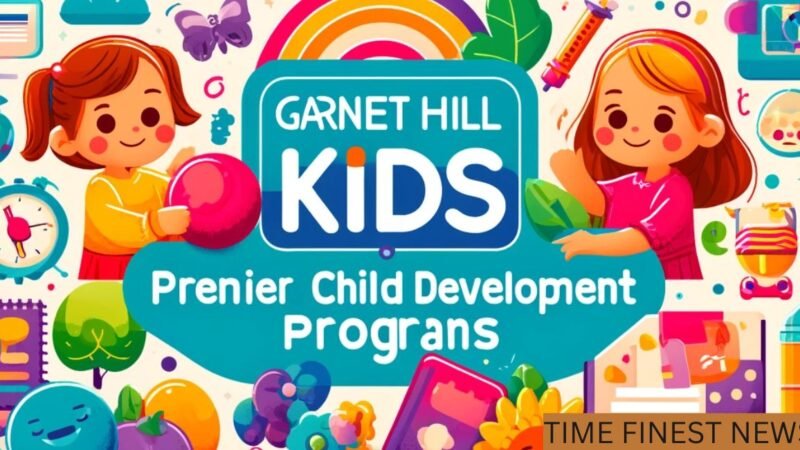The Power of Empathy: Why Understanding Others Can Help Tackle Insufferability

Emotional contagion is the term for the phenomena wherein our brains are hardwired to replicate the emotions of those around us, even if you are unaware of this. The foundation of empathy is the inbuilt capacity to sense what other people are experiencing.
Instead of only being a soft skill, empathy is a potent instrument that can solve insufferability by assisting us in better understanding others. It’s a tool that can change how we interact with others, helping us to understand them better and, in the end, promote tolerance and understanding.
Curious? Together, let’s investigate the potential of empathy and how it might aid us in navigating the rough seas of interpersonal relationships.
Definition of Empathy
Now let’s get started by defining empathy, a concept that is frequently used but rarely properly understood. It’s likely that you’ve used it in discussions, but do you really understand its depth?
In its most basic form, empathy is the capacity to comprehend and experience another person’s feelings. It’s viewing the world through someone else’s eyes and putting oneself in their shoes.
Remember, empathy is not the same as sympathy. Unlike compassion, which is merely feeling sorry for another person’s hardship, empathy goes above and beyond. It’s more than just sympathizing; it’s connecting with other people’s feelings and experiencing their emotions.
Among the many tools in your toolbox of interpersonal skills is empathy. It strengthens bonds between people and encourages understanding. It’s what makes it possible to create links between people in a world where miscommunication and bigotry so frequently split people apart.
The Empathy Science
After defining empathy, let’s look at the intriguing science that underlies it. You see, empathy is more than just a sentiment. It’s a multifaceted procedure that uses several parts of your brain. Your brain’s mirror neurons activate as you sympathize, reflecting the emotions of the person you are empathizing with. This explains why you frequently experience happiness when a friend is joyful or sadness when they are depressed.
Empathy is not solely a nurture-induced trait, according to research; nature also has a big influence. Certain people have a hereditary tendency toward more empathy. They are more perceptive of the emotions of those around them due to their increased sensitivity to others’ feelings.
The insula and anterior cingulate cortex, two regions of the brain linked to emotional control, are also involved in empathy. These domains facilitate comprehension of others’ feelings and enable you to react suitably.
Compassion and Human Relations
Comprehending empathy is more than just knowing its scientific definition; it also involves realizing how important empathy is to establishing and maintaining human relationships. When you have empathy with someone, you are establishing a deeper connection with them than just comprehending their point of view. It’s a bridge that lets you put yourself in their position, view the world from their perspective, and ultimately develop a closer relationship.
Three ways that empathy can improve relationships with others are as follows:
- Improved Communication: You can communicate more successfully if you are aware of how the other person is feeling. It’s simpler to recognize nonverbal clues. You have the option to reply in a way that affirms their emotions.
- It promotes candid and open communication.
- More Robust Connections: Your relationships, both personal and professional, can be strengthened by empathy.
- It cultivates respect and trust.
- It facilitates conflict resolution.
- It encourages cooperation and understanding between people.
- Higher Emotional Proficiency: One of the main elements of emotional intelligence is empathy. It improves your capacity to control your emotions. It improves your ability to manage social interactions sensibly and sympathetically.
- It improves your capacity for self-control and self-awareness.
Using Empathy as an Understanding Tool
Empathy is a powerful tool for deeply understanding people, even though it also strengthens relationships and increases emotional intelligence. Put yourself in another person’s position, experience their feelings, and gain insight into their viewpoints. This is how empathy has power.
As you can see, empathy is more than just having sympathy for the suffering of others. It’s important to comprehend their perspectives, feelings, and experiences. It’s all about making a genuine personal connection. By this link, you can see behind people’s outward appearances and gain insight into their desires, concerns, and intentions.
You can resolve disputes and forge closer bonds with others by practicing empathy. You can reach compromises and find solutions that work for everyone when you are able to view the problem from another person’s point of view. It can also promote diversity and inclusivity by assisting you in understanding others who are different from you in terms of ethnicity, culture, or life experiences.
You can even gain understanding of your own feelings and experiences through empathy. You can gain a deeper understanding of yourself by comprehending others.
Empathy’s Function in Lowering Intolerance
Empathy is essential while interacting with irritable people since it can lead to patience and understanding. You are more likely to handle the situation with more tolerance if you try to put yourself in another person’s shoes. Understanding their viewpoint is more important than endorsing their actions.
Here’s how empathy might assist in lessening irritability:
- Knowing Your Triggers: Each person has unique triggers. By feeling their pain, you can identify what prompts their irrational behavior and steer clear of those situations.
- Encouraging Communication: Empathy facilitates dialogue. You are experiencing their feelings in addition to hearing what they are saying. This can assist you in reacting in a way that reduces conflict.
Encouraging Change: People are more likely to be receptive to change if they feel understood. Your compassionate demeanor may assist them in realizing how annoying their actions are.
Doable Actions to Foster Empathy
Although developing empathy isn’t always simple, it is possible with regular attentive activities. Here are a few doable actions you can do.
Start by engaging in active listening. This entails paying attention to what people are saying rather than only waiting for your chance to speak. It’s important to comprehend their viewpoint in addition to your own.
Second, be genuinely curious about other people. Inquire and learn about their background. It’s important to value them as unique persons in addition to what you may get from them.
Thirdly, make an effort to understand other people’s perspectives. This entails understanding their point of view rather than necessarily agreeing with them. Try to put yourself in their shoes.
Finally, learn to be patient. Empathy requires work and patience. It’s a marathon, not a sprint. It requires repetition and practice. Thus, as you develop empathy, practice patience with both yourself and other people.
Case Studies: Practical Empathy
Let’s look at a few real-world examples where empathy has made a big difference in order to fully appreciate how powerful it can be.
- Customer Service: Organizations that place a high priority on empathy frequently observe a discernible increase in client satisfaction. For example, a call center representative who pays close attention to the customer’s problem and comprehends it well can offer a solution that makes the customer feel heard and appreciated. Zappos is renowned for providing sympathetic customer service and frequently goes above and above to guarantee client happiness.
- Healthcare: In circumstances related to healthcare, empathy is essential. Physicians can better care for their patients if they are aware of their worries and fears. Patient satisfaction rates at The Cleveland Clinic have increased as a result of their empathy program.
- Education: Instructors who understand the difficulties their pupils face can foster a more positive learning atmosphere. It has been demonstrated that the Roots of Empathy curriculum in Canadian schools increases prosocial behavior and reduces hostility.
Empathy is more than just a soft skill in each scenario. It’s an effective instrument that has the capacity to change outcomes and relationships. So why not begin strengthening your capacity for empathy right now? As you can see, the advantages are substantial.
Conclusion:
Hence, empathy is more than just a catchphrase for feeling good. It’s a powerful instrument that holds the key to happier relationships and a more positive world.
You can begin to remove some of the annoying people in your life by trying to understand them.
Although developing empathy can be difficult, the process is worthwhile.
Who wouldn’t want to live in a society where everyone is a little better at understanding one another, after all?
Now let’s get started and roll up our sleeves.





